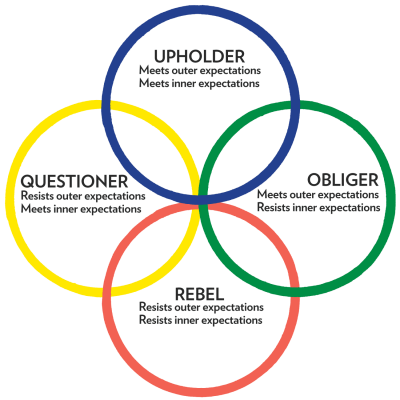2 Great Personality Assessments For Startups
Personality assessments are amazing tools for early stage companies.
Whether you’re a team of 5, 50, or 500, understanding who people are, how they work, and what motivates them is invaluable!
Personality Assessments Will Help You:
Increase productivity
Improve working relationships (even when they’re already good)
Customize managing and coaching approaches
Understand different motivations
Get people in roles where they’ll thrive
Let people do work they love
Have more patience and understanding for team members
Build camaraderie, trust, and culture
But not all personality assessments are created equal.
Below are my top 2 favorite personality assessments, pros and cons of each, plus a list of other assessment options.
Let the culture, clarity, and collaboration begin!
Assessment #1: Clifton Strengths 2.0
The Gist:
34 different strengths. Take a test to find out your top 5. They highlight what you are good at and what you like doing.
Strengths can be as varied as Competition, Strategy, Focus, Maximizer, Woo, Futuristic, and Learner. (with 27 more!)
Focus on strengths over weaknesses. Understanding and leveraging strengths makes a great workplace!
Pros:
Deep and unique.
Incredibly rich and deep in the insights. Much more robust than other personality assessments. It really gives a nuanced understanding of people.
People love it!
Every company where I’ve done Clifton Strengths, it’s been requested again and again. Teams do it for new hires, they have quarterly or annual sessions, and it becomes a database that is referenced to understand working styles, thinking patterns, and strengths.
Tons of research and science behind it.
Over 28 million people have taken it
Owned by Gallup, a very reputable research company
Based on research collected over decades, in its current form since 1999
Cons:
Most effective with a facilitator to explain how each person’s strengths work together
Assessments are $20-50/person + facilitation = not always within startup budget
P.S. Clay Kirkland is the facilitator I’ve used for 10+ years and he is EXCELLENT!
Assessment #2: Four Tendencies
The Gist:
How do you respond to external and internal expectations? This is the question asked by Gretchen Rubin, author and thinker behind Four Tendencies.
A fantastic framework to understand what will motivate someone to do something. The crux of business!
As an Upholder, I used to get annoyed at “Rebels” (ahem, my husband) or try to force structure on them (it never worked) until I learned about the Four Tendencies. 💡🤯 🙌
Cheat sheet ⬇️
Pros:
Simple, quick, and powerful
Applies to teammates and customers
Easy to understand and assess type in others
Motivating someone (or myself) to action is the root of company progress
Read a book, take a free quiz, and you’re ready to go! Fast and cost effective.
Cons:
Quite narrow. It’s focused on expectations and getting things done only. There’s more to humans than our productivity!
Relatively new concept so not much supporting research yet.
Gretchen is an Upholder so there might be bias toward this type. Every type has pros and cons. *BUT* it seems like there could be better names for Obligers, Questioners, and Rebels. Curious what the Obligers, Questioners, and Rebels think…
Common Personality Assessments
What else is out there? Here are some others that I’ve done or heard recommended.
Other Assessment Options:
Big Five (used in psychology research)
HBDI (Hermann Brain Dominance Instrument)
Myers Briggs (AVOID THIS ONE. Here’s why)
✨ COMING SOON ✨
We’ll cover tips and tricks for how to make the process of company-wide assessments work well. Helpful, not (too) cheesy, with strong internal adoption!
Have you used personality assessments with your team? How did it go? Any tips or favorites to share?





